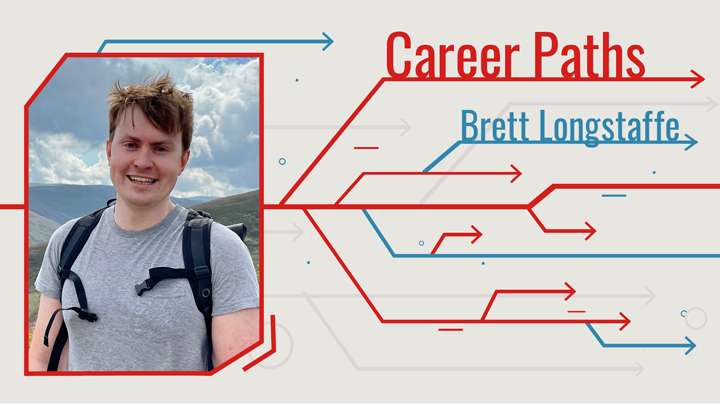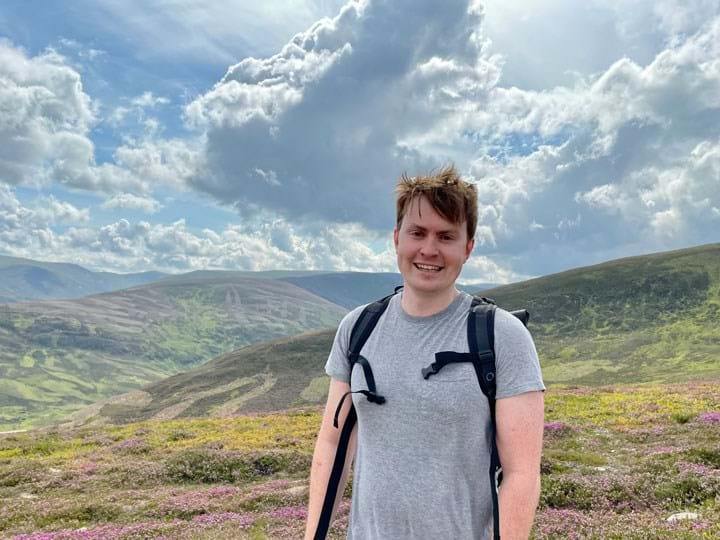The Nuclear Option

Brett Longstaffe talks about his role in engineering novel reactors
IN this series we speak to chemical engineers working outside of the fossil fuel sectors to highlight the breadth of opportunities open to those just starting their careers or seeking to change sectors.
Brett Longstaffe is Reactor Systems Design Lead for the Small Modular Reactor (SMR) project at Rolls-Royce, which is developing novel nuclear power station technology that minimises construction times and costs. SMRs are an advanced nuclear technology which the UK Government expects will play an important role in supporting a secure, affordable, decarbonised energy system. Rolls-Royce leads a UK consortium working to develop the technology.
“Our project’s strategic vision is to provide ‘Clean Affordable Energy for all’, a target which fits pretty well with the UN’s Sustainable Development Goals related to affordable and clean energy, and climate action. If I can contribute to an SMR operating for just one day, that’s equivalent to more CO2 emissions avoided than I will produce over my entire life”, says Brett.
“I’ve been quite lucky to be involved in the project from its early days, when we started with the fundamental requirement of providing low cost, zero carbon power. What I’ve really enjoyed is seeing how we can trace every design decision we are making today back to that origin. It’s also very satisfying to see a whole power station design develop from the ground up. Unlike making modifications to an existing design, it’s very clear to see how our day-to-day work influences the power station’s overall architecture.”
Brett’s previous roles at Rolls-Royce include working as a Fluid System Engineer and later a Test Development Engineer. However, his career began with a series of secondments after he achieved a Bachelor’s in chemical engineering, and a Master’s in nuclear science and technology at the University of Manchester, UK. His first job out of university was also his first as a Systems Engineer, working at global defence, security and aerospace company BAE Systems, through the
nucleargraduates scheme. Another of his secondments saw him serve a stint as Engineering Advisor for Nuclear Technologies in the UK’s Department of Energy and Climate Change.
What are the main responsibilities in your current role?
“As a Systems Design Lead, I am responsible for general design development of the emergency core cooling system, which is one of a number of safety systems that supports the SMR.
“I provide technical leadership and support to a small team of design engineers, who are progressing a number of cooling systems towards a preliminary concept design level of maturity.”
What skills have you developed since leaving university that you think have been key in helping you achieve your career aims?
“I think that to be a good design engineer you need to have a strong technical backbone in engineering fundamentals, but it is equally important to understand project organisation, governance and structured decision-making processes. I’ve been lucky enough to be supported through training courses such as commercial awareness and leadership throughout my time on the nucleargraduates programme. That was then complemented within Rolls-Royce with more theoretical
systems engineering training courses that put me in good stead for my system lead role today.”
What aspects of chemical engineering do you apply in your everyday role?
“On an average day I would be undertaking and reviewing design and optioneering activities which help develop the system definition; alongside preparing for design governance reviews and project management.
“But Systems Design Lead is a broad role and I would say that week-to-week I touch on the vast majority of fundamental chemical engineering design activities.
“For example, when sizing any particular component, we would start with material and energy balances to set the initial performance requirements. Then we would undertake cost and safety assessments of each system option, balancing the pros and cons systematically before a concept is selected. Once the design is agreed, the concept will then be documented through creation of piping and instrumentation diagrams and design definition reports.”
What chemical engineering skills were helpful or transferable to the sector/role you work in?
“Nuclear design requires a fundamental understanding of heat transfer alongside structured safety assessment and cost analysis, all skills which were directly applicable from my chemical engineering training.
“Also, I find that my background as a chemical engineer gives me a much broader base, which is particularly helpful when interfacing with different teams. For example, I may be asked to interpret information from performance modelling
teams and then move to a detailed discussion of valve attributes with a component designer.”

When applying for non-traditional chemical engineering jobs, what aspects unique to chemical engineering did you highlight to show you were the best candidate?
“Problem solving. Chemical engineering helps break down problems into fundamental relationships of components within a system. These skills are just as applicable to manufacturing and factory modelling as to design of a HVAC or chemistry control system. I think chemical engineering training also provides a unique appreciation for economic factors and safety compared to other engineering and physical science disciplines.”
Do you expect the need will grow in your sector for people with chemical engineering skills?
“Absolutely. In addition to the large new build projects at Hinkley Point and Sizewell, the UK is going to need more clean nuclear power to affordably meet its climate obligations. Our SMR programme needs to grow by hundreds of engineers over the next few years alone, filling jobs that will be required to take the project through detailed design and commissioning through to the next decade. This is in addition to new developments in fusion in Oxfordshire, not to mention complex technical chemical engineering challenges within the legacy decommissioning sector in Cumbria.
“Chemical and process engineering skills are in demand already, such as design, thermal hydraulic modelling, safety engineering, controls engineers, project management, cost modelling and technical leadership.”
What advice would you give to an engineer considering moving into your sector from a different one?
“I would advise you not to be put off by job adverts which sound like specialist roles outside of a typical process engineer’s scope. You will find that a chemical engineering background will have given you a very strong base to grow into many different careers within the industry.
“For example, I think any engineer who comes from a highly regulated sector, such as oil and gas, water or food and also appreciates commercial pressures of these sectors, would be well suited to nuclear sectors that have a renewed focus on cost while ensuing high UK regulatory standards – which rightly ensure that designers meet their safety obligations to the public – are upheld.”
What advice would you give to a recent graduate or early careers chemical engineer who wants to work in your sector/role?
“Do your research, there is a wealth of information available online about the industry. I’d particularly go to IChemE’s Nuclear Technology Special Interest Group and the Nuclear Industry Association’s job map (https://bit.ly/3mRd2Au); I found it quite surprising just how many opportunities are available in the supply chain.
“I would also say to any recent graduate that they should take ownership of their career development early on. It’s easy when graduate programmes provide a training pathway to take a step back and go with the flow. However, when the graduate programme is complete, it’s down to each individual to drive their own development. At this point the chartership competence and commitment report can be very helpful to quickly structure a gap analysis which can identify which development areas to focus on in your next few roles.
"Finally, I’d say it’s important to be vocal with requesting feedback, and generous in providing it; without regular feedback it’s not possible to reach your career potential.”
To read more articles in this series visit https://www.thechemicalengineer.com/tags/career-paths/
Recent Editions
Catch up on the latest news, views and jobs from The Chemical Engineer. Below are the four latest issues. View a wider selection of the archive from within the Magazine section of this site.




